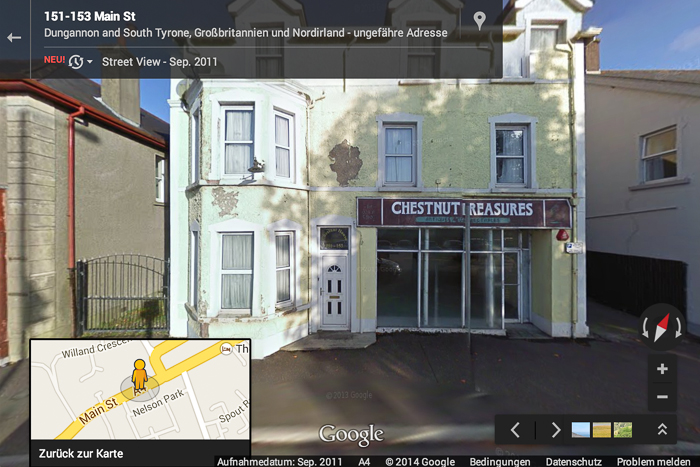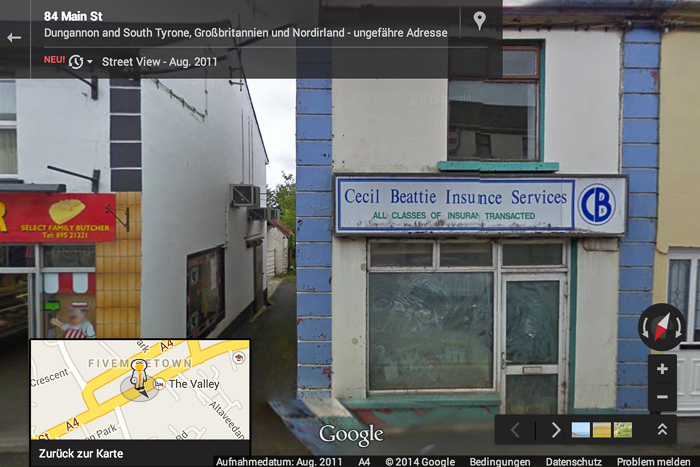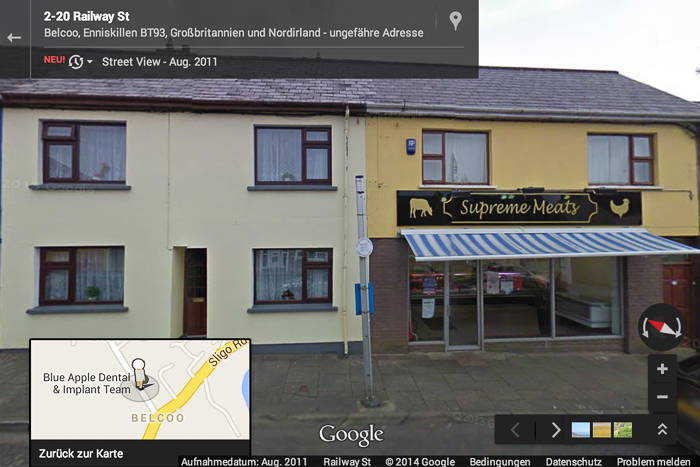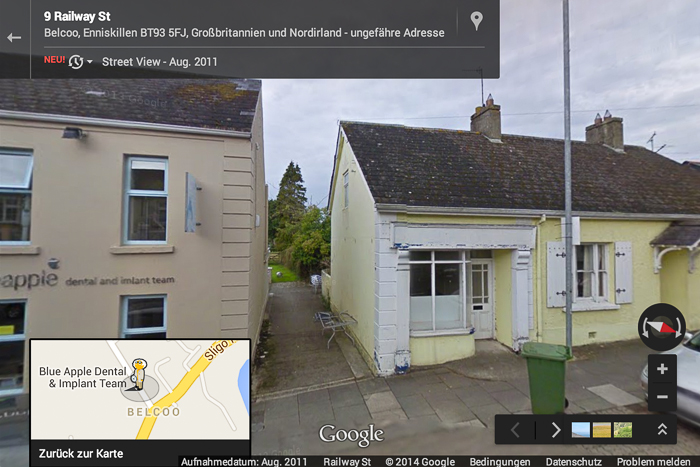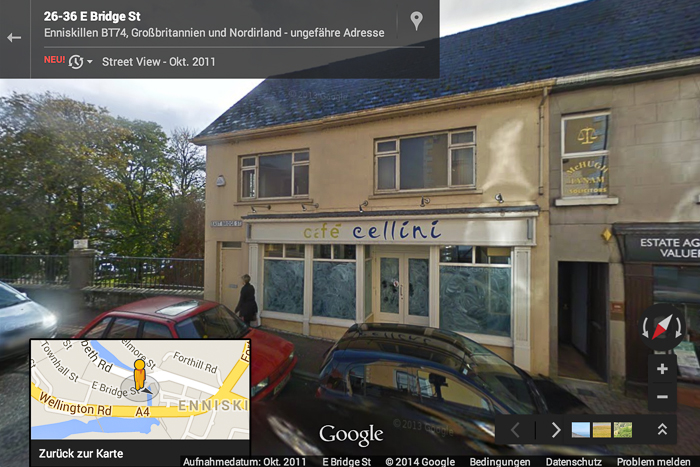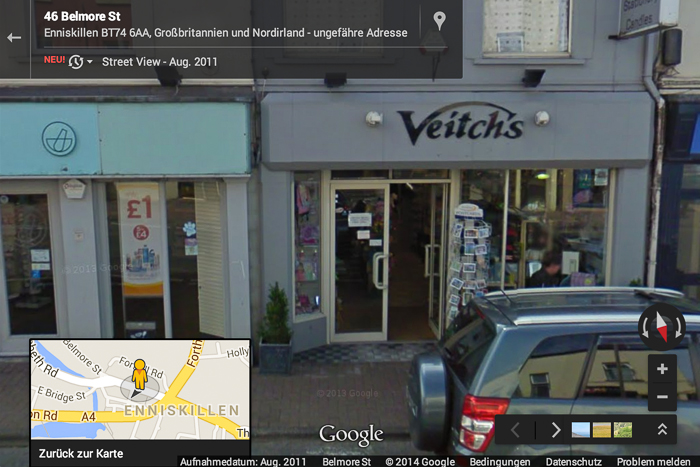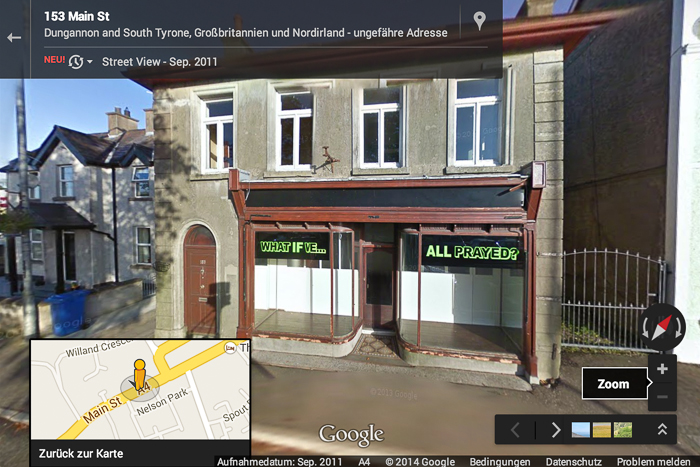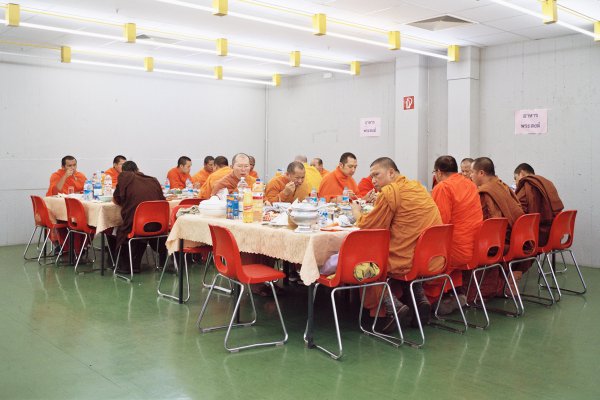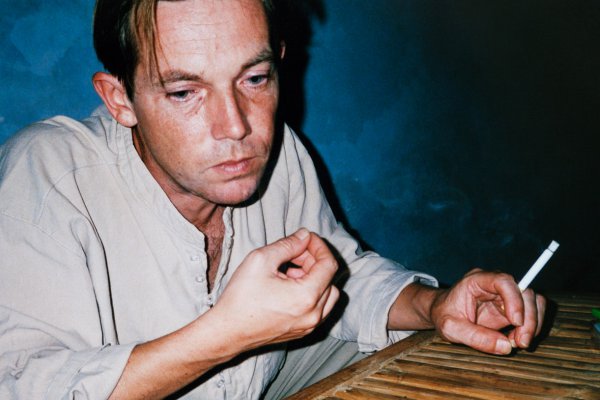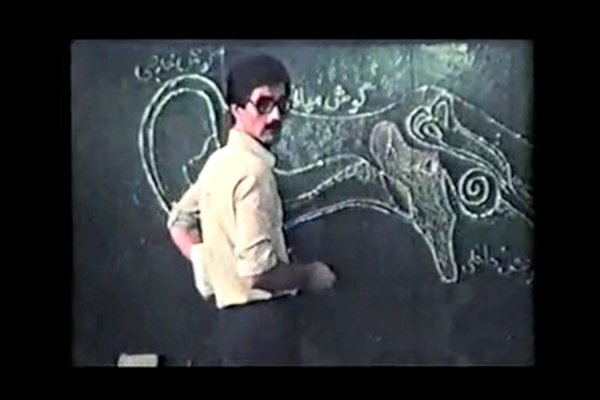Ever since Prince Grigory Aleksandrovich Potemkin is rumoured to have created villages from painted scenery along the route taken during the visit by Russian Tsarina Katharina II in 1787, the so-called Potemkin villages have been able to look back on a long tradition. On the occasion of the G8 Summit in June 2013 in Northern Ireland, where heads of state and government from eight leading industrial countries met, the purposely staged and planned game of deception between illusion and reality took an almost cynical turn.
The British government had the vacant business premises in the vicinity of the conference venue covered with photographic wallpaper. The packed shelves were intended not only to create the illusion of prosperity, but equally to fake vibrant business and bustle, where in reality emptiness, and in some cases, poverty prevails.The simulacrum becomes a substitute for reality, in which photography plays a dual role. On the one hand, it is a visual basis for creating a beautiful appearance. On the other hand, its purpose is to help to document this staging, officially bear witness to it, distribute information about it and thereby help it to reach a new level of reality.
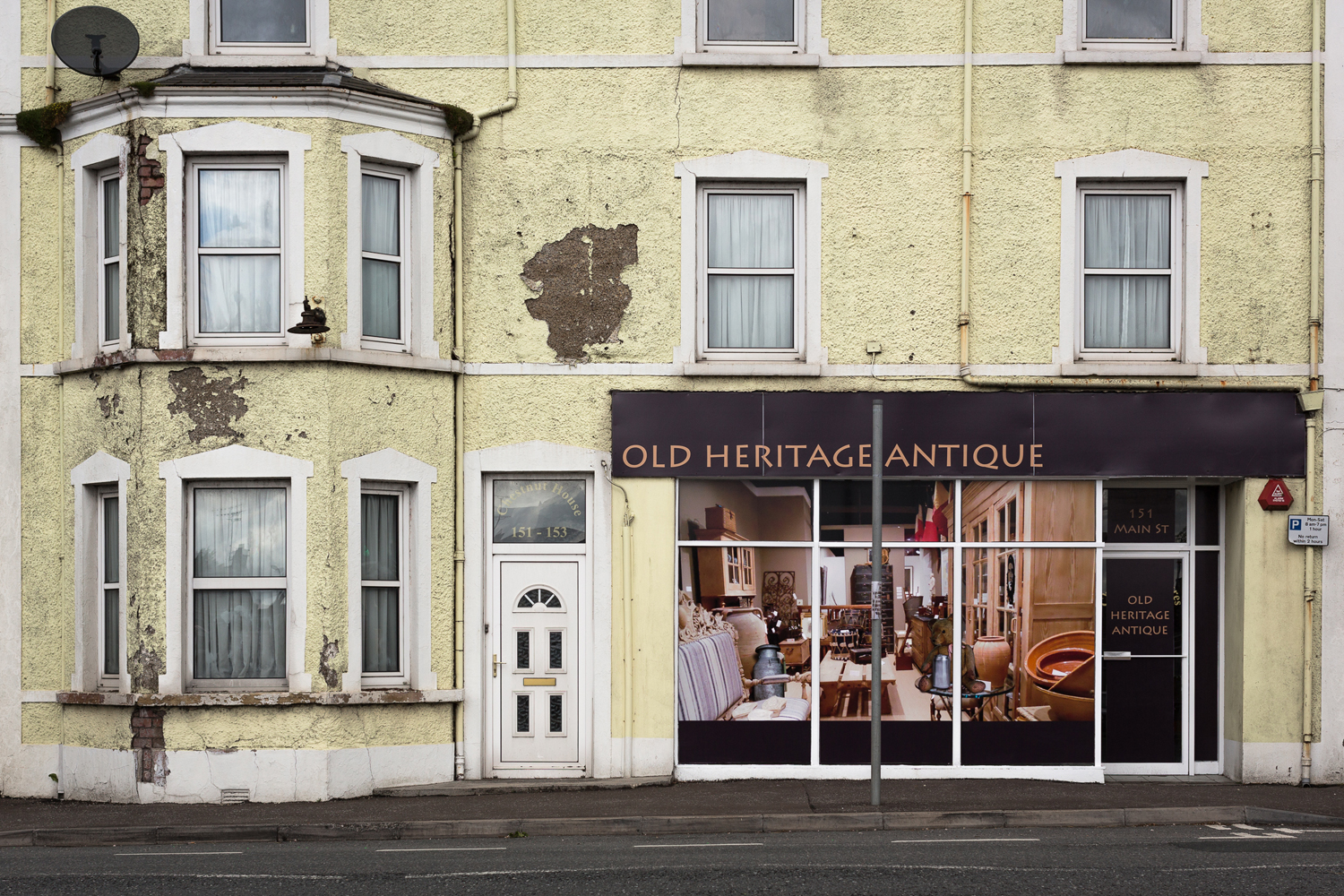
OLD HERITAGE ANTIQUE — Main Street, Fivemiletown
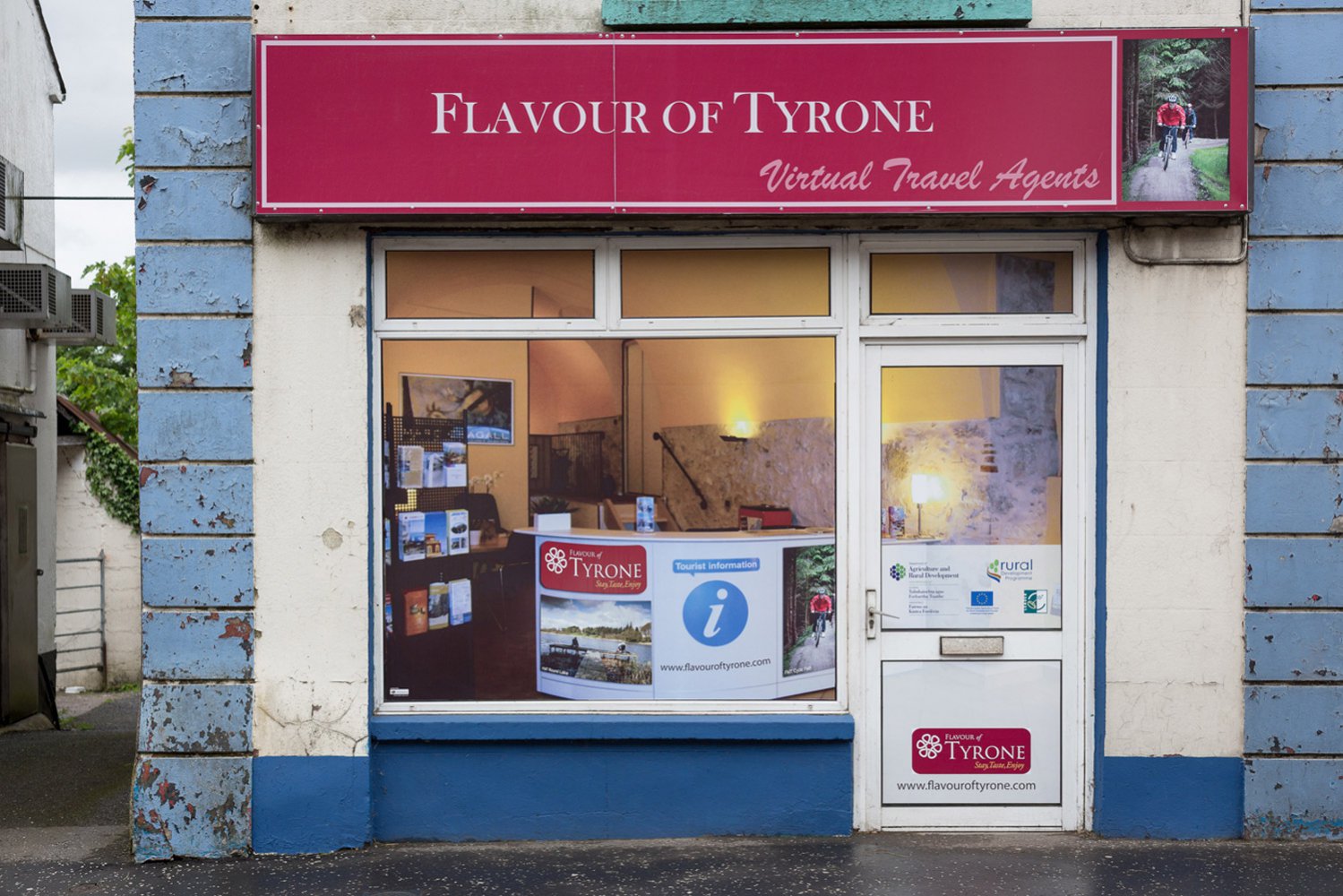
FLAVOUR OF TYRONE, VIRTUAL TRAVEL AGENTS — Main Street, Fivemiletown
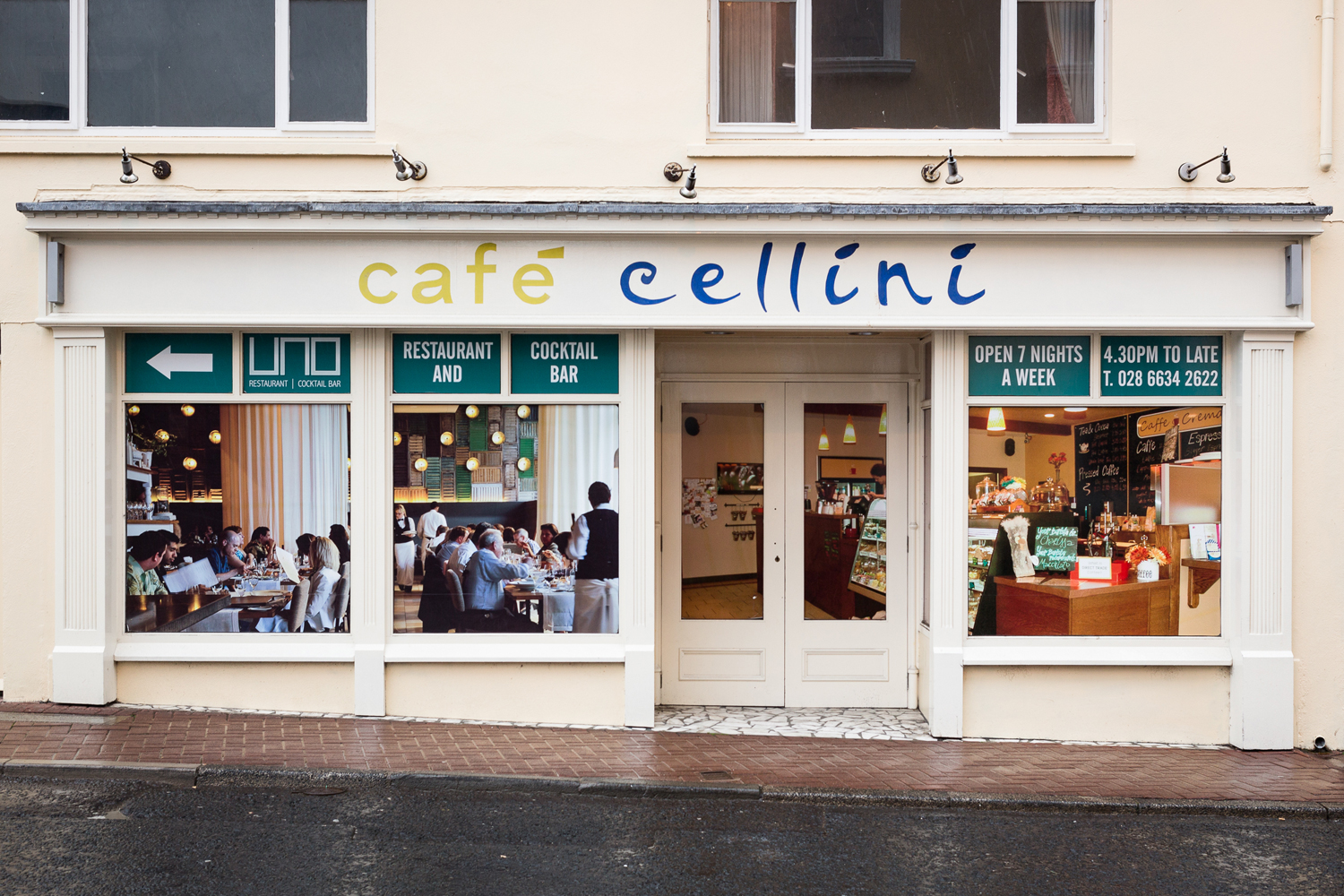
CAFÉ CELLINI — Enniskillen Bridge Street, Enniskillen
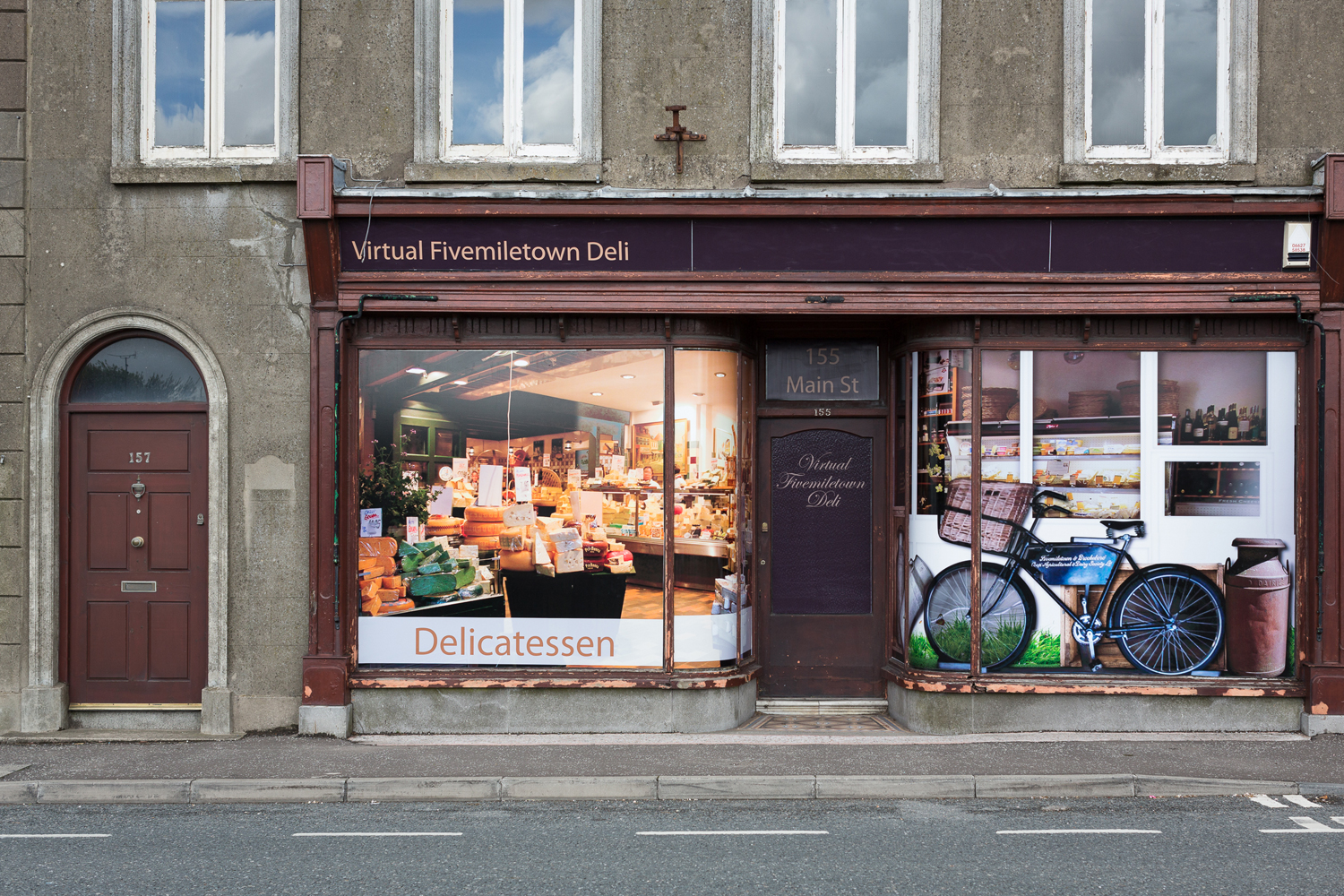
VIRTUAL FIVEMILETOWN DELI — Main Street, Fivemiletown
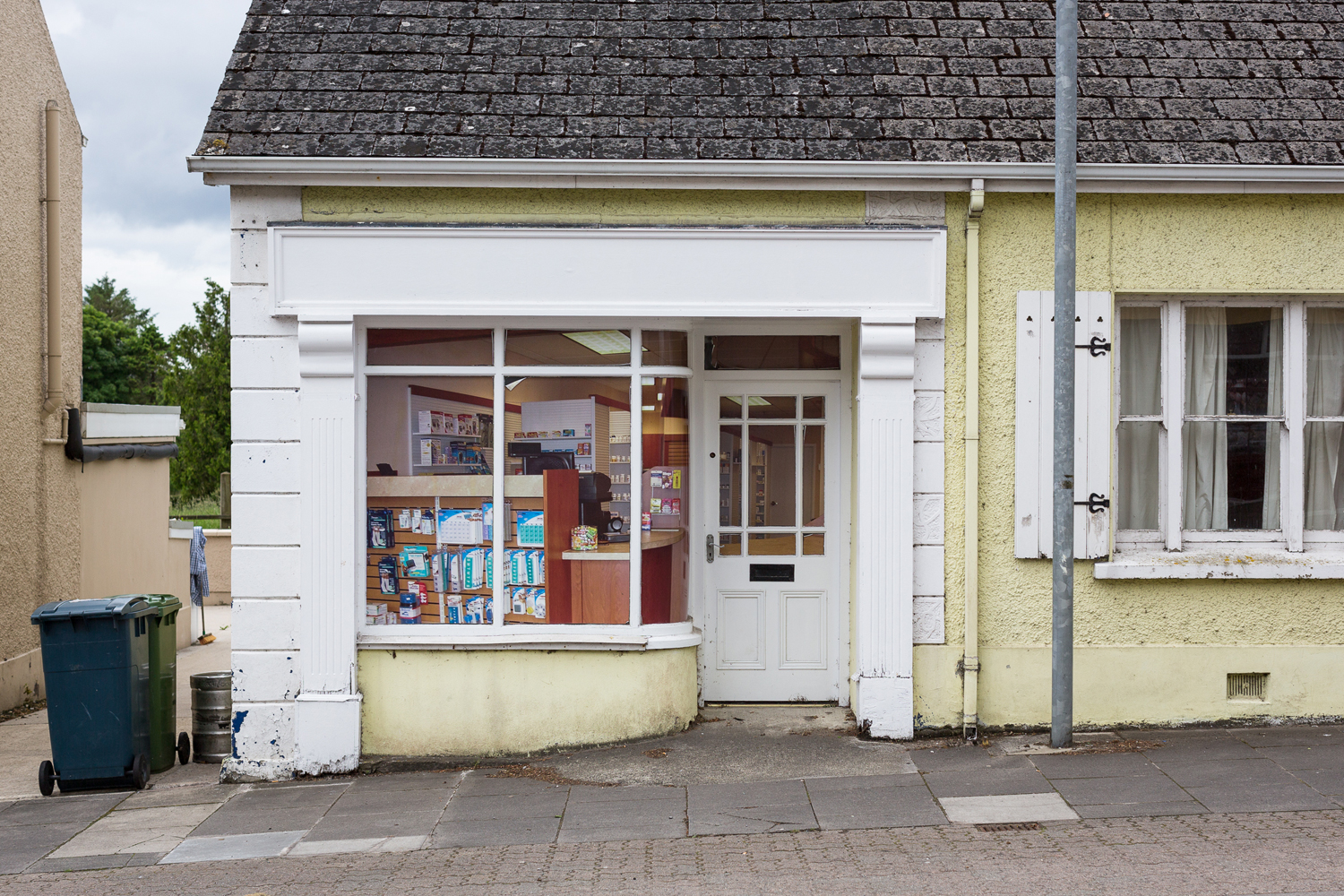
STATIONERY STORE — Railway Street, Belcoo
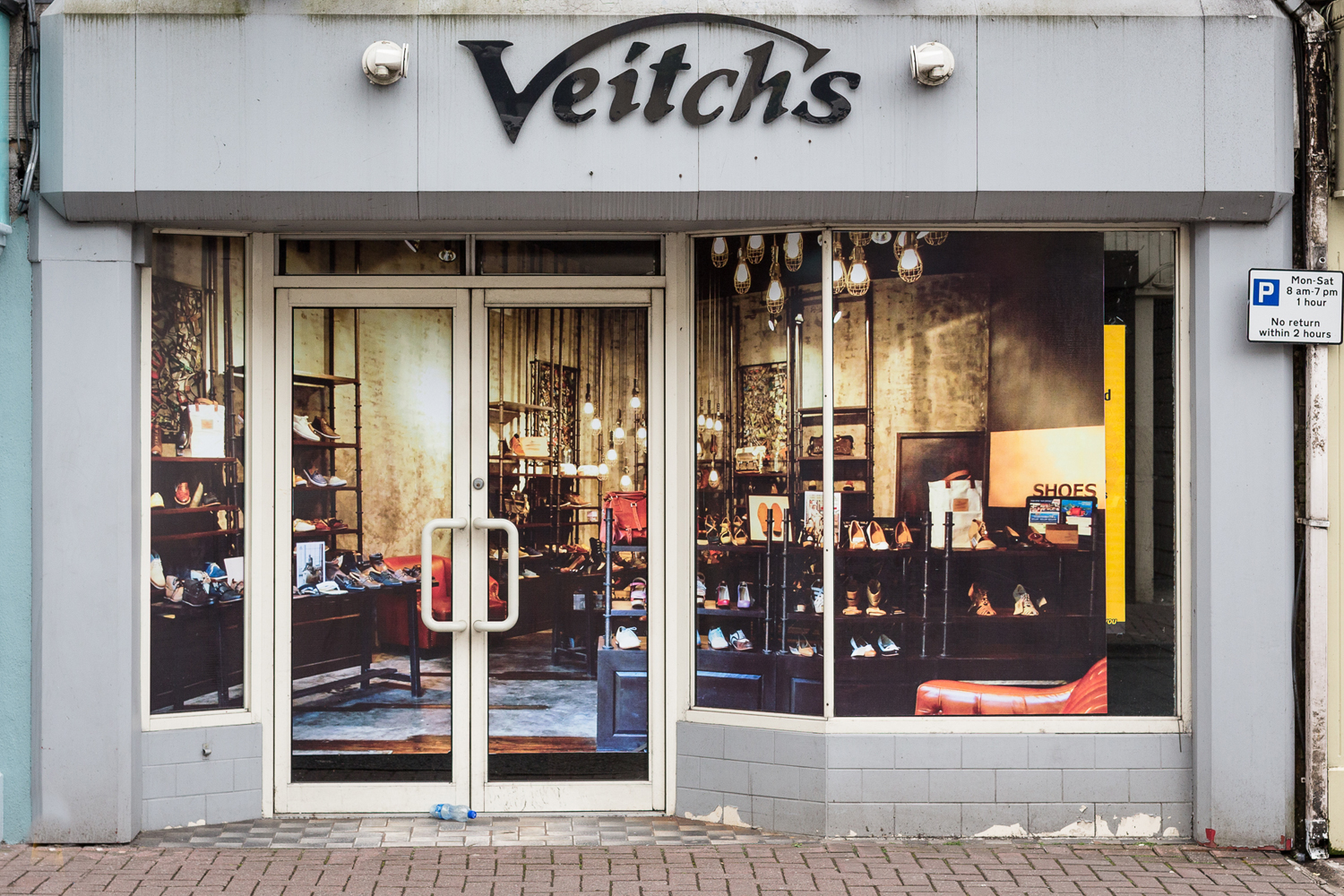
VEITCH'S — Belmore Street, Enniskillen
Kevin Fuchs’ series entitled “Window Shopping” represents a typology of manipulated reality within which fiction and reality are inextricably interwoven and almost mutually dependent: the reality of the photographic image suggests the actual reality of the subject of the image (and vice versa). When perceived superficially and rapidly, the photographs would be worthy of the “fake” Potemkin, as they appear to give the impression of a flourishing city with businesses, full of shop window displays and cafés etc. On second glance, however, our perception changes.
Something isn’t right, goods are stacked too regularly, the staging is too rigid
It becomes obvious that something is not right about the filled window displays: goods are stacked too regularly, the staging is too rigid. The condition of the facades in no way corresponds to what they are emulating either, as the plaster is crumbling and the paint is peeling. Beyond these fractures, however, something quite crucial is missing: people. The absence of the human subject means not only the absence of potential consumers, without whom the appearance of a prosperous economy is absurd anyway.
In fact, the photos reveal political hubris, helplessness and cynicism towards the current social and economic realities. Kevin Fuchs’ photo series broaches the issue of the public space as a political scope for activity into which reality or multiple realities are inscribed, but which also creates these realities. It documents the staging and similarly the absence of that which clearly cannot be simulated. The pictures pay testament to the moment in which the fault in the system of staging becomes visible.
